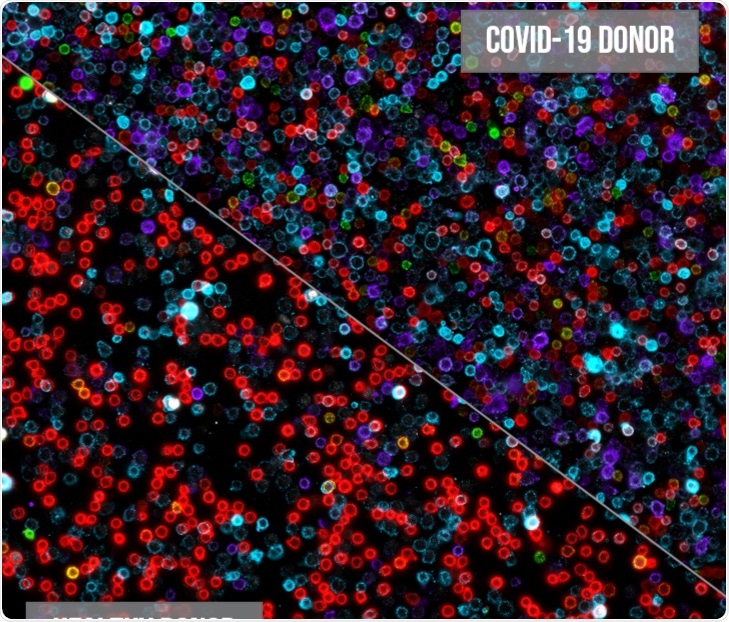Canopy Biosciences, a Bruker Company, today announced the successful development of a new assay for examining immune response to COVID-19. The assay uses high-plex spatial proteomics and is performed on Canopy’s ZellScannerONE precise spatial phenotyping instrument. ZellScannerONE enables multiplexed spatial quantification of protein biomarkers in tissue samples, as well as in suspended cells. Relative to traditional techniques, such as flow cytometry, Canopy’s ChipCytometry is able to detect and quantify many more markers with spatial resolution and longer storage times.

The COVID-19 Immune Response Panel reveals significant differences in the immune response of COVID-19 patients as compared to healthy control patients. Image Credit: Canopy Biosciences
The COVID-19 Immune Response Assay will be available initially as a service, performed by Canopy on researcher-supplied samples, and a reagent kit will be available at a later date. The COVID-19 Immune Response Assay allows researchers to spatially profile 18 different protein biomarkers. Data from these markers further enables the identification and quantification of 32 distinct cellular phenotypes, including major immune cell types as well as various cell states (e.g., exhaustion, activation, and proliferation). Using the COVID-19 Immune Response Assay on peripheral blood mononuclear cells (PBMCs), Canopy was able to characterize differences in immune cell composition in healthy patients versus those with severe COVID-19, consistent with previous reports.
The power of the COVID-19 Immune Response Assay is that it enables researchers to examine immune response in the absence of freeze-thaw artifacts that are inherent in traditional techniques, such as flow cytometry. Because the samples are stored stably on ZellSafe microfluidic chips, they can be assayed up to two years after collection. Additionally, the non-destructive nature of the assay allows samples to be reinterrogated with additional markers at a later date. As a microscopy-based technique, researchers can also actually visualize the 18-plex biomarkers in addition to quantifying immune cell populations through well characterized gating strategies. This adds a layer of confidence and precision not available using traditional techniques.”
Thomas Campbell, Ph.D., Product Manager, Canopy
The COVID-19 Immune Response Assay is available for service projects immediately.